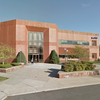To Tax Or Not To Tax
John Ciccariello, chairman of the Natick Board of Selectmen, doesn't think now is a good time to impose a local option meals tax on restaurants.
"We're trying to stimulate the economy, and adding taxes, in my opinion, doesn't stimulate the economy," Ciccariello said.
The problem is that residents at Natick's Town Meeting already approved increasing the meals tax by 0.75 percent last week in a slim 61-57 vote.
But now a town meeting member, resident Jimmy Brown, has asked for last week's vote to be reconsidered, a motion Town Moderator Frank Foss is mulling.
Foss said he hopes to make a decision on whether the meals tax vote can be reconsidered by Thursday night.
Foss said town meeting rules dictate that there must be a "compelling reason" to consider the vote, which is up to the discretion of the moderator. Foss said he will review whether there was any incorrect information presented during debate, or if any information was missing from the debate of the tax.
He said no local restaurants spoke during the debate of the proposed tax, but all local residents and businesses owners are welcome to attend town meeting.
Local Control
Last year when the state legislature voted to increase the state meals tax from 5 percent to 6.25 percent, the legislature also gave communities the option of increasing the local meals tax to as much as 7 percent.
More and more communities around the state have been considering increasing the local meals and hotels tax this year, given the possibility of additional cuts from the state.
Natick isn't alone in the debate over the meals and hotel taxes. According to media reports, Westborough has already adopted an increased hotel tax, while Worcester has gone for the increased meals tax. Residents in Framingham and Milford are both considering increasing the taxes.
Natick Selectman Joshua Ostroff supported the meals tax in Natick, but he isn't happy about it. In the face of budget cuts from the state, communities have difficult decisions to make, he said.
"What we're trying to do is to preserve the quality and scope of services residents and businesses expect," Ostroff said.
The meals tax, if imposed, would bring in an additional $176,000 to Natick this fiscal year after it becomes effective on Jan. 1, 2010. Next year, the tax would provide an estimated $424,000 for the town.
The selectmen have voted unanimously that any money raised through the local meals tax be used to pay for long-term capital expenditures and to build up the town's financial reserves. Using money for those expenditures would free up money that could be spent to offset cuts in services.









0 Comments